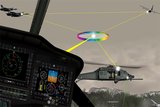Podcast: Five Eyes Connectivity - Canada
In this episode of the Five Eyes Connectivity podcast, we look at the unique situation faced by Canada and how its military is responding to a rapidly changing world.
The US is taking off the gloves in the growing, shadowy cyber war waged with China, Russia and other rivals, a top White House official said on 20 September.
National Security Advisor John Bolton said the country's ‘first fully articulated cyber strategy in 15 years’ was now in effect.
The new more aggressive posture follows a decision by US President Donald Trump to revoke rules established by his predecessor Barack Obama to require high-level authority for any big military cyber operations.
Bolton said: ‘Our hands are not tied as they were in the Obama administration. For any nation that's taking cyber activity against the United States, they should expect... we will respond offensively, as well as defensively. Not every response to a cyber attack would be in the cyber world.’
Bolton referred to China, Iran, North Korea and Russia as major sources of threats, saying ‘Americans and our allies are under attack every day in cyberspace.’
Hostile intrusions target everything from US infrastructure to government bureaucracies, businesses and elections, according to Bolton.
Among the most notorious incidents is the hacking, allegedly by Russian military agents, of Democrat figures' email accounts just before the 2016 elections, in which Republican Trump took a surprise win against the heavily favoured Hillary Clinton.
On the defensive side, US efforts will include ‘network hardening’ and improved cyber security, the Pentagon said.
But the new strategy of what the Pentagon called ‘countering, disrupting, degrading and deterring’ attacks emphasises much more than better firewalls.
US Treasury Secretary Steven Mnuchin said that the department ‘has used its cyber sanctions authorities to impose costs on Russia, North Korea, Iran and others for a wide range of behaviour.’
And Secretary of Homeland Security Kirstjen Nielsen said that the domestic security department would push ‘for electronic surveillance and computer crime laws to be updated to keep pace with the rapidly evolving environment. Transnational criminal groups are employing increasingly sophisticated digital tools and techniques.’
The State Department, meanwhile, focused on what it said would be increased efforts to build up internet security in allied countries ‘because of the interconnected nature of cyberspace.’
The department said: ‘When our partners improve their cyber security practices, it ultimately makes other states, including the United States, safer and more resilient against cyber threats.’

In this episode of the Five Eyes Connectivity podcast, we look at the unique situation faced by Canada and how its military is responding to a rapidly changing world.

In this episode of the Five Eyes Connectivity podcast, we hear how two of the smaller militaries in the Five Eyes alliance – Australia and New Zealand – are responding to a rapidly-changing world.

In this episode of the Five Eyes Connectivity podcast, we hear how a rapidly shifting threat environment is driving a transformation of British military capabilities.

In this episode of the Five Eyes Connectivity podcast, we dive into the connectivity issues facing the US military and its further development of the Multi-Domain Operations concept.

The Australian Department of Defence announced on 11 May that it is exploring ways to integrate laser-based optical and RF communication technologies onto a single …

Looking to the future of the Multifunctional Informational Distribution System Joint Tactical Radio System (MIDS JTRS), BAE Systems expects an imminent new production contract and …